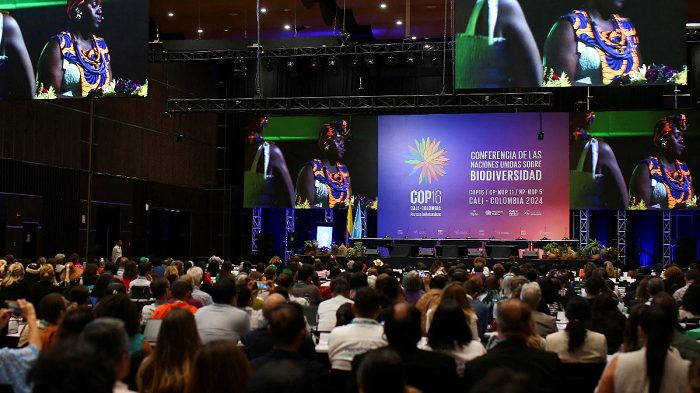COP16 of the Convention on Biological Diversity concluded on Saturday, November 2, 2024, Cali but the Fossil Fuel Treaty Initiative believes that, by excluding the elimination of fossil extraction from the final text of the negotiations, the event fails to confront one of the greatest threats to biodiversity and climate: the extraction and flaring of oil, gas and coal.
While the negotiations made important advances – first and foremost the recognition of indigenous peoples and Afro-descendant communities as stewards of biodiversity, the creation of the Global Coalition “Peace with Nature”, and the reaffirmation that geoengineering, a speculative technology, must not be part of the climate response – a crucial opportunity to address the common cause of the climate and biodiversity crises was missed.

Both crises are said to be driven by the same destructive force: the fossil fuel industry, which, as in the climate negotiations, remains the elephant in the room.
Despite efforts by Colombia, together with Fiji and other Pacific islands, as well as indigenous peoples and civil society organisations, to connect the climate and biodiversity crises and include fossil fuels in the final text, all mention of oil, gas and coal extraction was removed, severely compromising the future of nature and humanity.
Andrés Gómez, Latin America focal point for the Fossil Fuel Non-Proliferation Treaty, said: “The COP16 in Cali was supposed to be a turning point to redefine our relationship with nature. However, the omission of the urgently needed fossil phase-out in the final text has meant another missed opportunity to address the common cause of the climate and biodiversity crisis.
“Promises to protect 30% of land and seas by 2030 and civil society demands for repayment of the North’s ecological debt to the South again fail to materialise, while support for the fossil industry remains intact. We hope that the leadership that Colombia has shown with its commitment to the Fossil Fuels Non-Proliferation Treaty will be endorsed by other nations at the COP 29 that is about to begin.”
Kumi Naidoo, President of the Fossil Fuel Non-Proliferation Treaty, said: “Biodiversity and climate change are not abstract concepts or isolated problems; they are realities that communities defending their territories face every day, especially in the Global South, where the devastating effects of the fossil industry are felt most acutely. It is precisely the resistance and solidarity among the peoples of the South that points the way forward to protect nature.
“Our commitments will be empty promises as long as we do not end the fossil fuel era. From the Fossil Fuel Non-Proliferation Treaty initiative, we pledge to contact every head of state, urging them to join this effort at the upcoming COP29 in Baku. At this critical moment in history, the time for shying away from reality is over; we must tackle at the root what threatens the life and future of humanity.”
